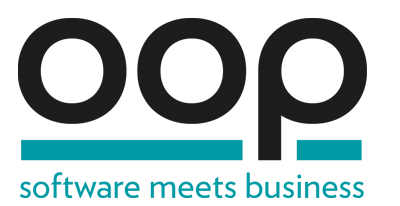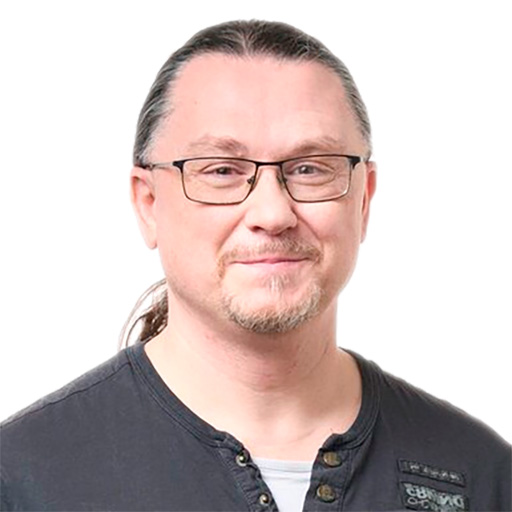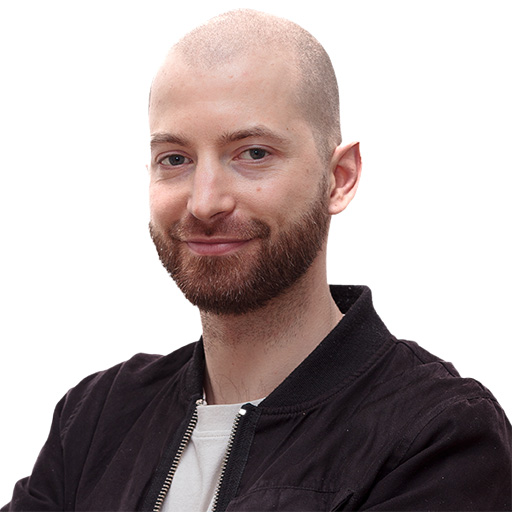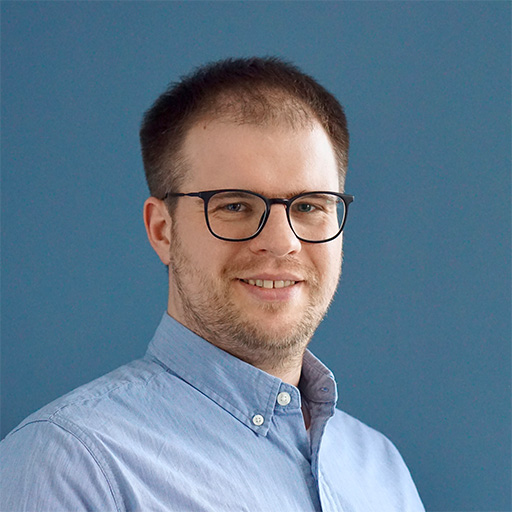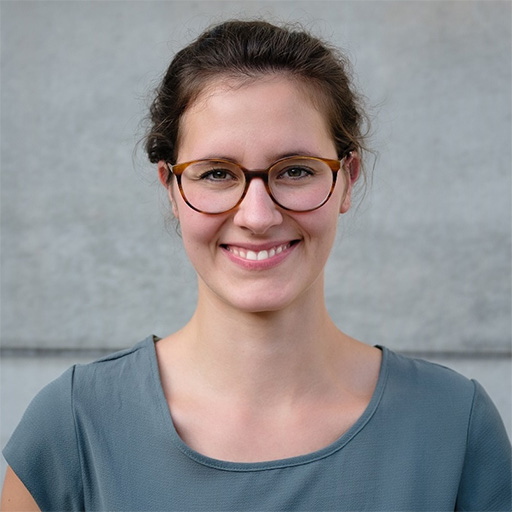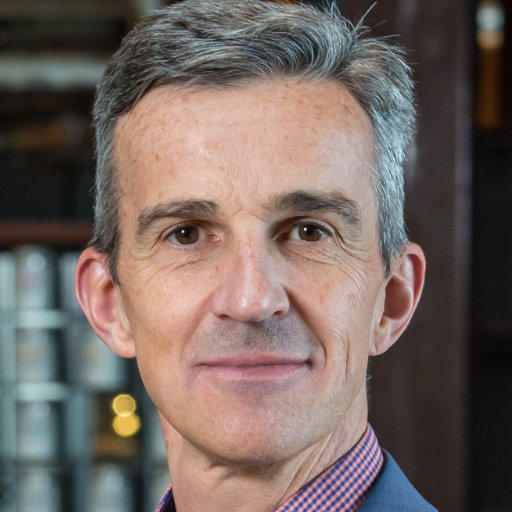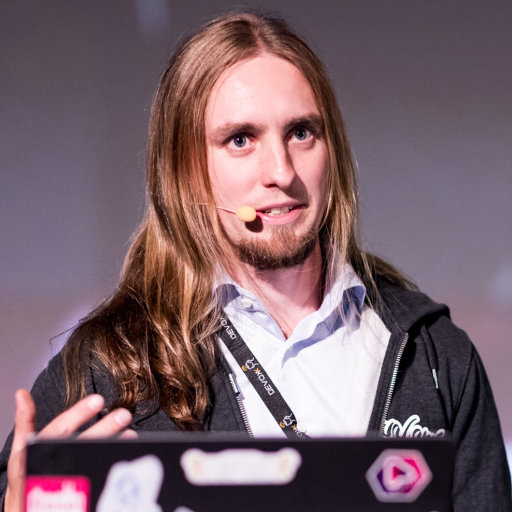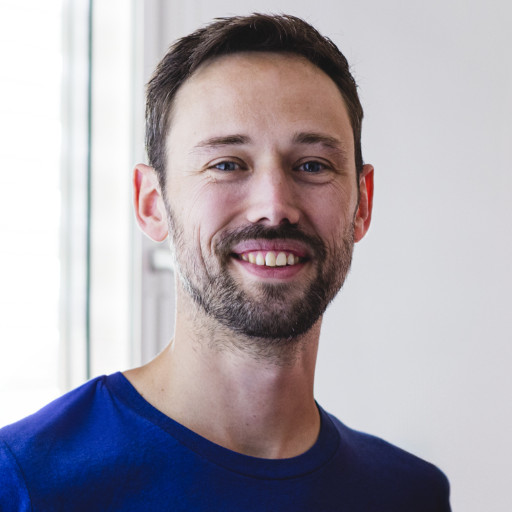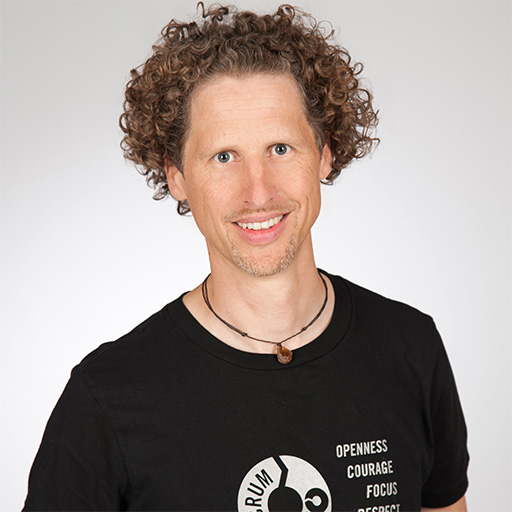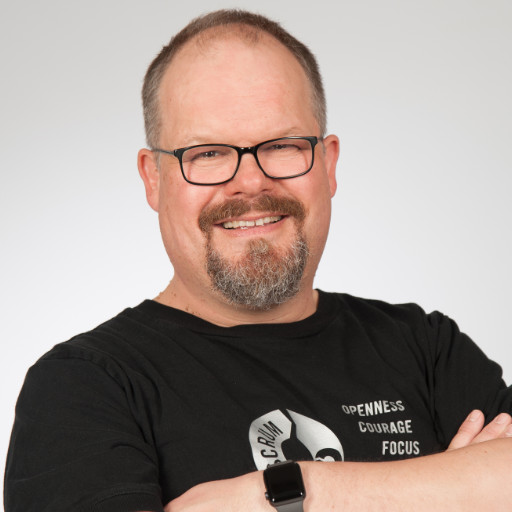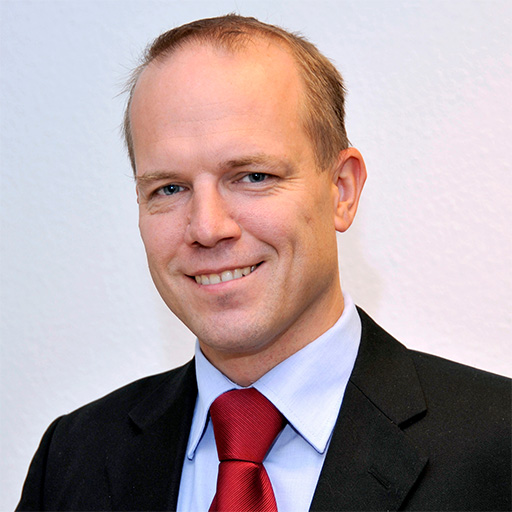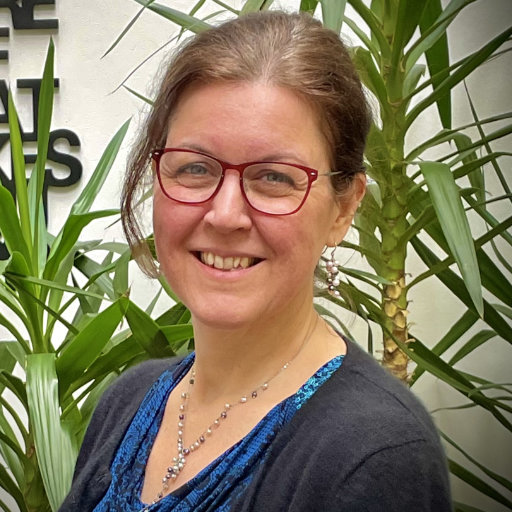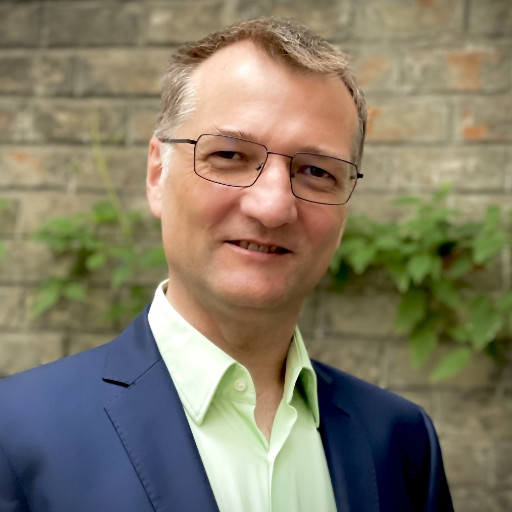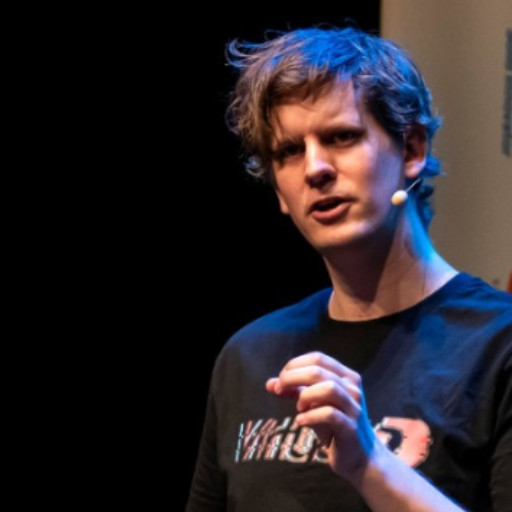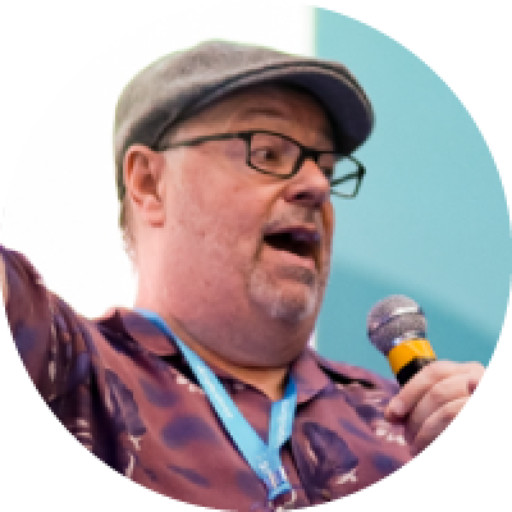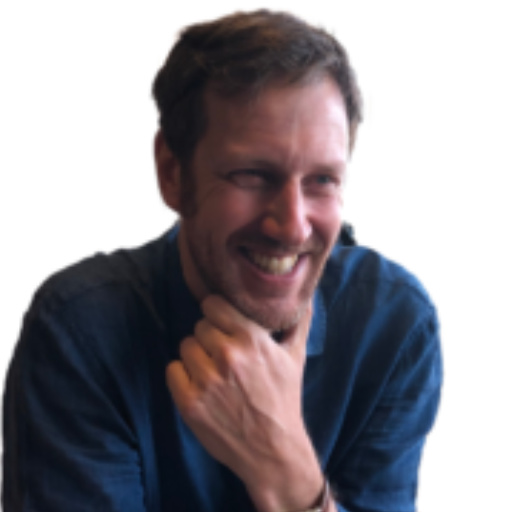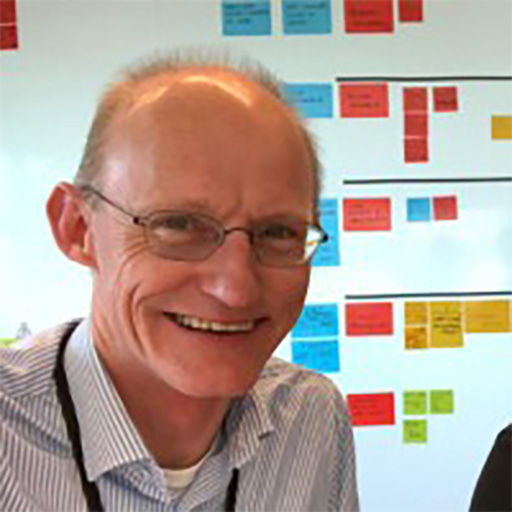Track: Half Day Tutorial
- Montag
03.02.
Moderne Kollaborationsmethoden wie Event-Storming helfen, Fachexpert:innen und Entwickler:innen zusammenzubringen. „Domain Modelling“ geht noch einen Schritt weiter und ermöglicht gemeinsame Arbeit direkt am Code. In diesem Workshop erprobt ihr das Vorgehen an einem praktischen Beispiel.
Ihr bekommt einen PO zur Seite gestellt, der euch die Fachlichkeit erklärt. Zunächst erarbeiten wir im Event-Storming das Big Picture. Anschließend modellieren wir in kleinen Gruppen die Domäne mithilfe eines funktionalen Typsystems. Fachexpert:innen haben die Möglichkeit, direkt Feedback zum Code zu geben.
Ziel des Workshops ist es, nicht nur das Typsystem richtig zum Domain Modelling zu verwenden, sondern auch die Kommunikation mit POs, Kunden und anderen Fachexperten zu üben.
Maximale Teilnehmendenzahl: 24
Zielpublikum: Entwickler, Produkt-Verantwortliche, POs, Architekten
Voraussetzungen: Kenntnisse in TypeScript oder Kotlin sind hilfreich, aber keine zwingende Voraussetzung
Schwierigkeitsgrad: Advanced
Marco Emrich ist Architekt und Consultant bei codecentric und leidenschaftlicher Verfechter von Software-Craft und Codequalität. Er hält regelmäßig Vorträge auf bekannten Konferenzen und ist Autor mehrerer Fachbücher. Wenn er mal nicht tief im Code vergraben ist, zocken ihn seine Kinder in analogen Brettspielen ab. Du kannst ihm unter linkedin.com/in/marco-emrich-47485388 folgen ;)
Ferdi is a Developer and Consultant at codecentric. He is passionate about Software Craft and Domain-Driven Design (DDD), and advocates for close collaboration to enhance quality. Ferdi co-hosts the Software Craft Leipzig Meetup and believes that hands-on sessions are the best way to learn new skills and techniques.
Psychologische Sicherheit ist von entscheidender Bedeutung für erfolgreiche Teamarbeit in der Softwareentwicklung. Die Teilnehmer:innen erfahren, wie wichtig es ist, dass alle Mitglieder sich sicher fühlen, um offen Ideen auszutauschen und Kritik zu äußern.
Der Workshop basiert auf wissenschaftlichen Erkenntnissen und bietet praxisorientierte Ansätze, um psychologische Sicherheit zu fördern.
Die Teilnehmer:innen lernen die Relevanz in komplexen Softwarearchitektur-Projekten kennen, verstehen die Kontextspezifik und warum Unsicherheit oft normal ist. Interaktive Segmente ermöglichen die Reflexion über bestehende Teamdynamiken und bieten konkrete Ansätze zur Verbesserung.
Ziel ist es, evidenzbasierte Strategien zu entwickeln, die langfristig eine offene und konstruktive Teamkultur fördern und bestehende Mythen zu Psychologischer Sicherheit zu entkräften.
Vorkenntnisse sind nicht erforderlich.
Zielpublikum: Architekten, Entwickler, Tester, Fachexperten, Projektleiter, Manager, Entscheider
Voraussetzungen: Keine
Schwierigkeitsgrad: Basic
Martin has been consulting and supporting companies in the implementation of their software projects as a software architect and agile coach for many years. He always has the big picture in mind, looking for the boundaries that naturally divide the domain into conceptual units in order to build robust and efficient systems from these parts. Additionally, his profound experience in facilitating workshops helps him to accompany groups in their process of gaining insights and decision-making and to enable all team members to interact in an appreciative and effective manner.
Helen is a psychologist and has been supporting teams and organizational units in learning together for several years, for example in the role of an agile coach. She uses her training, her systemic approach, and her experience in designing and facilitating collaborative workshops to make collaboration effective and at eye level. In her work, she pays particular attention to the people in the organization without losing sight of the big picture.
Good testing is full of challenges that need to be addressed to bridge the gaps and to improve. This interactive tutorial is about real-world examples of testing challenges from different areas (e.g., test mission, TDD, review and test design, design for testability, built-in quality) and how to overcome them in practice.
Attend this tutorial to
- get familiar with specific testing challenges based on real-world examples
- learn how these testing challenges have been solved
- share experiences on how to bridge the gap in testing
- be enabled to apply the discussed strategies, tactics, and practices to improve your test approaches in the future!
Maximum number of participants: 50
Target Audience: Test Architects, Test Managers, Test and Quality Engineers, Software Architects, Developers
Prerequisites: Basic knowledge about testing and quality engineering
Level: Advanced
Peter Zimmerer is a Principal Key Expert Engineer at Siemens AG, Technology, in Garching, Germany. For more than 30 years he has been working in the field of software testing and quality engineering. He performs consulting, coaching, and training on test management and test engineering practices in real-world projects and drives research and innovation in this area. As ISTQB® Certified Tester Full Advanced Level he is a member of the German Testing Board (GTB). Peter has authored several journal and conference contributions and is a frequent speaker at international conferences.
Vortrag Teilen
How easily can your product team respond to changes in business requirements, technological advances, and new tools? When your code can be secured, upgraded, moved, or modernized with greater ease, you can swiftly and effectively adapt to changes in technology and markets.
We’ll show you how to use OpenRewrite, an open-source auto-refactoring tool, to study and analyze your code before arranging migration and modernization efforts – and then automate code updates for your teams.
Guided by small incremental exercises, you will develop, test and run your first recipes against your project of choice. From there, you can then define your own, custom use cases for automated migrations, and set your first steps towards achieving these goals during the workshop.
This is a comprehensive introduction to the OpenRewrite universe, which you can bring your project to. You’ll learn how to be productive with OpenRewrite and utilize its features for your needs. Two experts are on hand to help guide you through the exercises, bringing years worth of experience no matter if you’re new to the subject, or looking to gain in-depth knowledge directly from the source. You’ll have all the tools you need to plan and execute massive code changes within your company.
Target Audience: Developers, Architects and technical interested Decision Makers
Prerequisites: Understanding of Java, Maven or Gradle, Git
Level: Basic
Merlin ist seit 10 Jahren Java-Entwickler. Er hat in verschiedenen Bereichen gearbeitet, von Gesundheitswesen über den Energiesektor bis hin zum deutschen öffentlichen Sektor. Er hat eine Vorliebe für die neuer Sprachfeatures und kleiner Technologiestacks. Er ist ein Zuspieler seiner Volleyballmannschaft, aber seine wahre Leidenschaft gilt dem Segelflug.
Mehr Inhalte dieses Speakers? Schaut doch mal bei sigs.de vorbei: https://www.sigs.de/experten/merlin-boegershausen/
Tim te Beek is a staff software engineer at Moderne, which automates software refactoring at scale. He has extensive experience contributing to and presenting on Open Source software within the Java ecosystem.
Vortrag Teilen
Envision an enterprise where Scrum, LeSS, Lean, and Kanban can thrive fully, bolstering the evolution of your products and services. Welcome to GAME3.
GAME3, standing for Generic Agile Metaframework for Empirical-based Enterprise Evolution, is a game-changer in business agility. It focuses on three key components: A robust leadership system, strategic evolution, and universal rules for the Enterprise.
Whether you're leading a small or medium-sized Enterprise or a division within a larger corporation, GAME3 equips you with the tools to succeed in a dynamic market.
Join our workshop to explore these building blocks. Implement them in your organization for unparalleled business agility and growth.
Target Audience: Project Leader, Decision Makers, Agile Coaches, People Managers, Line Managers
Prerequisites: Basic understanding of agile principles and practices
Level: Advanced
Peter Beck, a seasoned Scrum Trainer and engineer, is devoted to building value-driven companies. He founded DasScrumTeam, reflecting these values. With a degree in Electrical Engineering and Information Technology, he specializes in software development. Since 2004, he has helped businesses foster a culture of evolution. As a co-founder of DasScrumTeam AG, he champions Agile principles at the Enterprise level, notably through GAME3 and ScALeD.
Andreas Schliep, co-founder of DasScrumTeam, is a respected Scrum Coach and Trainer with two decades of software industry experience. Known for his leadership in Scrum implementation and organizational transformation, he's a sought-after speaker and advocate of Agile principles.
Vortrag Teilen
In dieser Sitzung erhaltet ihr aktuelles praktisches Wissen über die Bewertung von Softwarearchitekturen mit Schwerpunkt auf KI-basierter Software, im Hinblick auf Sicherheits- und Datenschutzanforderungen und darüber, wie man eine unsichere Architektur mit Hilfe von Schutzmaßnahmen und Best Practices verbessern kann, die aus dem OWASP AI Security and Privacy Guide und den aktuellen Top 10 der Sicherheitsprobleme von maschinellen Lernsystemen (OWASP Machine Learning Security Top 10) abgeleitet sind.
Wir werden Schwachstellen von maschinellen Lernsystemen betrachten, wie: Input Manipulation Attack, Data Poisoning Attack, Model Inversion Attack, Membership Inference Attack, Model Theft, AI Supply Chain Attacks, Transfer Learning Attack, Model Skewing, Output Integrity Attack, und Model Poisoning
... und Sicherheits- und Datenschutzziele und -techniken, wie: Nutzungsbeschränkung und Zweckbestimmung, Fairness, Datenminimierung und Speicherbegrenzung, Transparenz, Datengenauigkeit, Zustimmung.
In Breakout-Gruppen werden praktische Übungen mit Open-Source-Tools zur Sicherheitsanalyse von Architekturen und deren Implementierungen durchgeführt, darunter SonarQube und das Threat Dragon Tool. Ihr schlüpft in die Rolle des Angreifers und greift die (bewusst unsicher entwickelte) Webanwendung „Google Gruyere“ an. Auf diese Weise erwerbt ihr konzeptionelle und praktische Kenntnisse der IT-Sicherheit auf Architekturebene und im Kontext der Softwareentwicklung.
Als Werkzeug zum praktischen Einsatz in der Sicherheitsanalyse von Web-basierten Architekturen dient u. a. die Penetration-Testing-Infrastruktur Kali Linux.
Das Tutorial besteht zu ca. 50 Prozent aus praktischen Aktivitäten, die ihr in Kleingruppen unter Anleitung des Dozenten durchführt. Durch das praktische und interaktive Konzept könnt ihr Softwaresicherheit aus eigener Anschauung erleben.
Maximale Teilnehmendenzahl: 20
Zielpublikum: Architekten, Entwickler, QA-Manager, Projektleiter
Voraussetzungen: Grundlegendes Verständnis von Softwaresicherheit
Schwierigkeitsgrad: Basic
Jan has worked on secure software architectures for more than 20 years. His first book on the topic in 2005 was also translated to Chinese. Previous positions include: Professor for Software Engineering (TU Dortmund), Senior Member/Research Fellow (Robinson College, Uni Cambridge), Royal Society Industrial Fellow (Microsoft Research Cambridge), Postdoc (TU Munich), PhD Computer Science (Uni Oxford) in Software Security, Master in Mathematics (Uni Bremen).
Vortrag Teilen
Der Führungsalltag und seine Herausforderungen haben sich in den letzten 3 Jahren grundlegend verändert: Arbeitszeitflexibilisierung, Generationenkonflikte, Homeoffice, Pensionierungswelle, AI – diese und weitere Themen brechen ziemlich plötzlich und gleichzeitig über uns herein und hinterlassen Ratlosigkeit und schlaflose Nächte. In der Folge setzen immer mehr Führungspersonen wieder stärker auf Kontrolle, starre Vorgaben und Micro-Management. Dass das schief gehen muss, ist vielen von uns klar.
Was kann man stattdessen tun? Wir plädieren für das Prinzip „Freiwilligkeit“.
Wie würden Meetings aussehen, wenn die Teilnahme daran völlig freiwillig wäre? Wozu sollte dann jemand kommen? Und welchen Unterschied würde das machen? Wo in der Führung kann man noch auf Freiwilligkeit setzen? Arbeitszeiten- und Arbeitsortmodelle? Teamzugehörigkeit? Aufgabengebiete? Würde man so ins Chaos führen oder eine neue Art von freiwilligem Folgen ermöglichen? Hmmm ...
Wir möchten in diesem interaktiven Tutorial mit dir gemeinsam dieses Gedankenexperiment wagen: Was wäre durch Führung mit Freiwilligkeit möglich? Wo ist sie sinnvoll und welche Voraussetzungen und Grenzen sind zu beachten?
Wir bringen ein paar spannende Hintergrundinformationen plus Berichte aus der Praxis mit und sind gespannt, ob es uns gelingt, das Thema Führung in ein neues Licht zu setzen. In diesem Tutorial möchten wir neue Inspirationen, Chancen und Lösungsideen für den mutigen Aufbruch in eine Arbeitswelt beleuchten, in der Führen und Folgen wieder Spaß machen.
Zielpublikum: Führungspersonen, Organisationsentwickler:innen, Scrum Master, Agile Coaches
Voraussetzungen: Keine
Schwierigkeitsgrad: Basic
Veronika Jungwirth, MC ist Senior Coach und Trainerin für lösungsfokussierte Führung & Kommunikation; Master in Coaching und lösungsfokussiertem Management (MC), CSM, PSM, PSPO; Co-Gründerin der sinnvollFÜHREN GmbH.
Sie arbeitet seit 2006 als Führungskräfte- und Teamcoach, Organisationsentwicklerin, Lehrcoach und Trainerin für lösungsfokussierte Kooperation, Kommunikation und Coaching im agilen Kontext. Sie bringt Berufserfahrung in den Bereichen Bildung, Vertrieb und Führung mit und ist immer wieder auf Konferenzen und Meetups als Vortragende oder Mit-Organisatorin anzutreffen.
Dr. Ralph Miarka, MSc ist Senior Coach und Trainer für lösungsfokussierte Führung & Kommunikation sowie Agilität und Scrum; Master of Science in systemisch-konstruktivistischem Coaching (MSc), PCC, CSM, CSPO, CSP, CTC, zPM; Co-Gründer der sinnvollFÜHREN GmbH.
Er ist seit 2010 als Agile Coach tätig. Zuvor war er verantwortlich für den agileSEM bei Siemens PSE und Leiter des Support Centers für Projektmanagement. Seine agile Erfahrung sammelt Ralph bereits seit 2005, seit 2012 ist er ausgebildeter Business Coach (MSc in Coaching). Er unterstützte mehrere Unternehmen bei ihrer agilen Evolution, unter anderem Siemens, Nokia, Gigaset, Bison AG Schweiz und AGFA Healthcare.
Vortrag Teilen
Software stakeholders and users approach technology through the lens of their cultural norms and worldviews. As software designers, we often introduce new concepts and terminology to better address those needs. This can mean adapting or even reshaping their cultural perspectives. But culture, by nature, seeks consistency and conformity, providing a framework to our daily chaos. This consistency can make language and models rigid, often leading to ambiguity. So, how can we navigate and reshape these ingrained cultural perspectives and behaviours during software design?
Join our interactive workshop that explores the dynamic relationship between organizational culture and software design. This session offers a balanced mix of theoretical insights into how cultures function and impact our professional lives, coupled with practical exercises to help implement these concepts. We will delve into the critical role of culture in shaping software design, with a special focus on 'symbols' as a core cultural element. Participants will engage with a domain model that illustrates how language, as a cultural symbol, significantly influences both domain-specific and software contexts. Through hands-on exercises, we'll examine techniques to grasp the cultural significance of these symbols, equipping participants to either adapt effectively or employ strategies and heuristics to transform them. This includes practices such as experimenting with alternative narratives, using storytelling to understand and convey culture, and leveraging humor as a cultural lens. The workshop will conclude with a series of case studies presented through interactive discussions, showcasing the application of various techniques and heuristics in collaborative software design. These studies will highlight both successes and challenges in navigating and reshaping cultural symbols and behaviors.
Maximale Teilnehmendenzahl: 32
Target Audience: Technical leaders, decision makers, software engineers, architects
Prerequisites: Software design experience
Level: Expert
Kenny Baas-Schwegler believes in collaborative software design where ‘every voice shapes the software’. Leveraging a domain-driven design approach with Team Topologies, he facilitates clearer communication between stakeholders and software creators by collaborative modelling and deep democracy, decoding complexities, resolving conflicts and ensuring software remains agile to business demands.
In his roles as an independent software consultant, tech lead, and software architect, he catalyses organisations and teams towards designing and building sustainable and resilient software architectures.
Avraham Poupko is the head of Product Security for Forescout. He learns and teaches about how people join to create software.
As a systems architect, Avraham Poupko has spent the last 25 years analysing, modeling and designing software as well as teaching systems thinking and system design. Avraham experience varies from working with small startups that have one product, to large enterprises that create very complex domains and systems. Avraham is currently leading a multi disciplined team that is designing the next generation data center.
Avraham is currently studying, writing and teaching about the varied and complex relationships between the organizations that create software and the software they create.
Vortrag Teilen
When building complex systems, it's easy to focus on features and overlook software qualities, specifically architecture and technical debt. Some believe that following Agile practices—starting quickly, keeping code clean, and having many tests—will naturally lead to good architecture. While an architecture will emerge, if there is not enough attention paid to the architecture and the code, technical debt, and design problems will creep in until it becomes muddy, making it hard to deliver new features quickly and reliably.
This workshop presents elements of sustainable development for dealing with technical debt. The main topics include the technical debt metaphor and concept, the impact of incurring technical debt, some types of technical debt, and what is not technical debt.
Furthermore, we will discuss practical techniques, including using AI for identifying, measuring, and mitigating technical debt, ensuring that rapid development does not compromise the sustainability of the software. To meet future business needs we will also address modernization techniques—replacing outdated systems by integrating new technologies and aligning the architecture with modern best practices.
Attendees will gain actionable insights into leveraging proven practices to deliver high-quality software reliably and efficiently. Join us to discover best practices (patterns) that will empower your teams to navigate the complexities of modern software development.
Maximum number of participants: 40
Target Audience: architects, technical managers, agile coaches, developers, POs, Scrum Masters, QA
Prerequisites: Understanding architecture is beneficial though not necessary
Level: Advanced
Joseph Yoder is the owner of the Refactory and president of the Hillside Group. The ACM recognized Joe as a Distinguished Member in the category "Outstanding Engineering Contributions to Computing".
Graziela Simone Tonin has worked in the technology market for over 19 years in Brazil and abroad. Ph.D. in Computer Science. Received the US IBM World Award and the Women of Value Award. Led the Women In Tech Project.
Graziela mentors and worked in several national entrepreneurship and innovation programs, such as Innovativa Brasil. Ambassador of Clube Bora Fazer, an entrepreneurship community. She works as a professor at Insper Institution, a Teacher of Executive Education and customized programs for C-Levels, and also is a professor in Computer Science and Engineering program. She led the Women In Tech Project and is co-leader in the Gender Front of the Diversity Committee at Insper. Graziela leads volunteer projects throughout Brazil through the Grupo Mulheres do Brasil. In addition, she is part of a worldwide research project that analyzes initiatives aimed at women in software engineering.
Vortrag Teilen
How can we contribute to improving the delivery of valuable software?
Not everyone working in IT has deep experience as a software developer. And not every developer has had the opportunity to experience a fast-paced development process using effective TDD in a mobbing session.
- > still, we're expected to deliver ever more complex solutions in ever more connected systems.
This session allows you to deeply experience the development process without needing development skills. We'll be working in a tool that everyone in IT knows: a spreadsheet :)
After a short intro we'll create a complex formula in an iterative way, including the tests to guarantee that each step we take is a reliable one. You'll be able to actively participate in the mob. Or witness the interactions via the fishbowl format.
As a manager or team-member using excel, you might learn a thing or 2 about formulas. And as a developer, you might learn a thing or 2 about TDD and mobbing. But you'll also notice that each member of the mob has specific knowledge that the others can learn from you.
After this session you have gained insight in how to further professionalize a software development team. Both as team member (coding or non-coding) and as leader (Product Owner, Scrum Master, Manager, (Agile) coach, ...).
Maximum number of participants: 40
Target Audience: Leaders, Coaches, Analysis, Testers and Developers
Prerequisites: None
Level: Basic
Olivier Costa is a Belgian IT leadership & Technical Excellence coach and a true pioneer in agile, with over 20 years of experience, both as coach and teacher and as a software developer. His first talk on an agile conference was in 2005 at XP Days, after which he helped organize this conference until 2017. ‘To teach is to learn’ is what his aikido teacher kept telling, so he created numerous workshops and presentations as part of his work and at meetups and conferences.
Edwin Burgers started his career as a software developer in the Netherlands at the Dutch Railways. After shifting to leadership roles, he moved to agile coaching in 2009. Since then he helps teams and organization to apply agile principles and practices to increase their effectiveness, both in governance and (international) commercial organizations.
Vortrag Teilen
